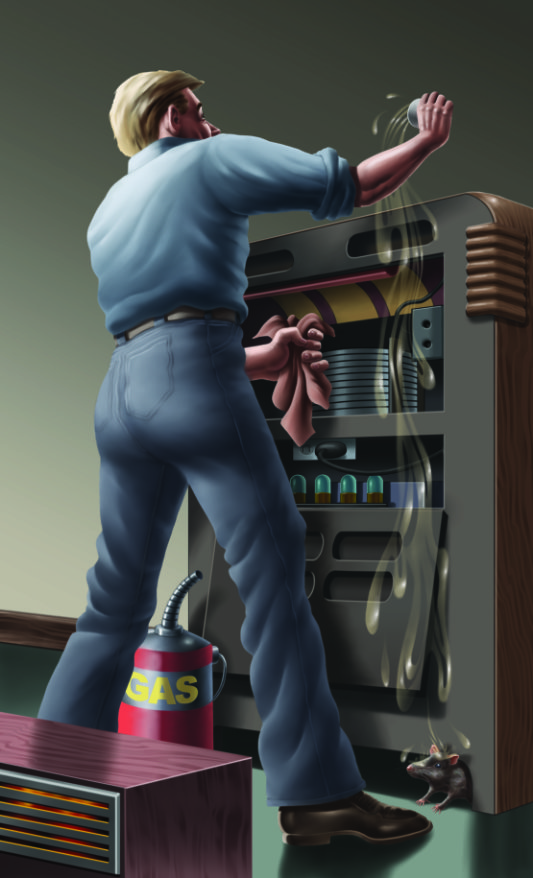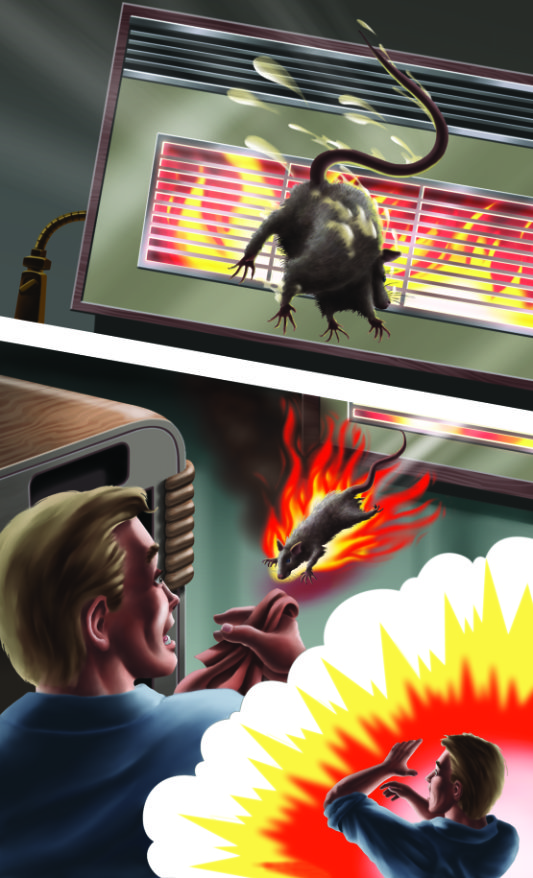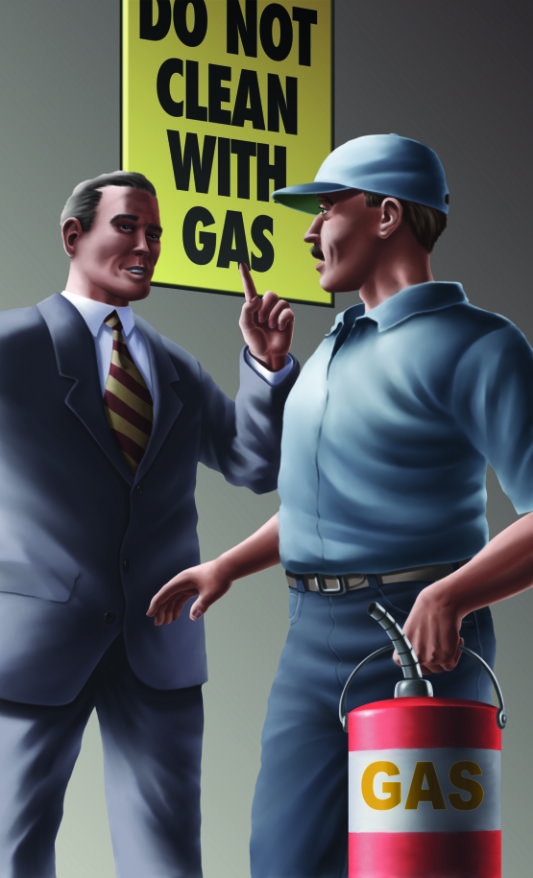Flaming Rat
United Novelty Co. v. Daniels, 1949

Cleaning With Gas
In 1949, nineteen-year-old William Daniels was using gasoline to clean coin-operated machines kept in a small room at the United Novelty Company in Mississippi. The room was kept warm by a gas heater with an open flame. He was killed when there was an explosion caused by a bizarre sequence of events.
The Rat
Unknown to Mr. Daniels, there was a rat inside the machine he was cleaning. The gasoline splashed on the rat and soaked its fur.

The Gas
In the words of the court, the rat "attempted to seek sanctuary beneath the heater where it overexposed itself and its impregnated coat, and returned in haste and in flames to its original hideout," which was the machine that Mr. Daniels had drenched in gasoline.
The Explosion
The flaming rat’s return to the gasoline-drenched machine, combined with the gasoline vapors that filled the small room, caused an explosion that killed Mr. Daniels.


The Lawsuit
William Daniels’ family sued the company for failing to enforce its own rules against using gasoline to clean machines and won. The court held that the company should have foreseen the risk of fire or explosion resulting from the use of gasoline. The fact that a foreseeable risk (an explosion) was caused in an unforeseeable way did not exempt the company from liability.
Questions for thought
If someone does something negligent, should he or she be responsible for all damages resulting from that negligence, even if the harm and the extent of the damages are wildly unforeseeable? What if the rat had rabies, was chased out because of the gasoline, and bit Daniels? Should the type of harm have to relate to the type of negligence?